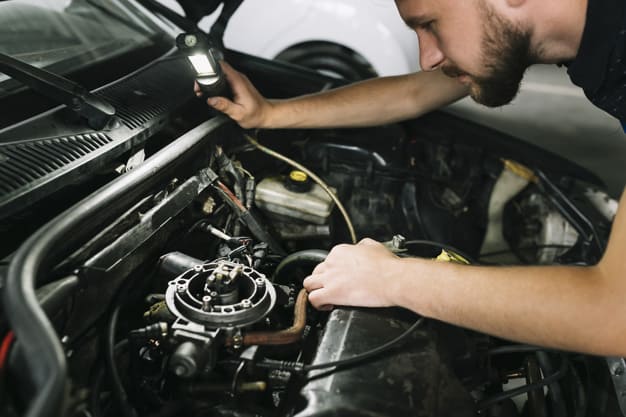European vehicles are can be a dream come true when you buy them. However, once they start requiring a high level of maintenance they can turn into a nightmare if you don’t know a good mechanic. The trouble with European vehicles is that they are over-engineered.

The systems can be convoluted and have way too many technical aspects to obtain the apex of engineering. When cars are built for performance, the reliability usually drops off because performance requires a lot of sensitive adaptations. Let’s consider the 10 reasons why you need to hire a professional Euro specialist in greater detail below.
1. Value-Pricing
When you hire a European specialist, you are getting the most value for your money. As with any profession, you are paying for the experience of the professional and the quality of their work. Because it takes great focus for anyone to become an expert in European vehicles, their time is more precious.
You wouldn’t want to get heart surgery from a general practitioner. For the same reason, you don’t want to take your refined performance automobile to someone who is best suited for grunt work and changing tires.
Mechanics who don’t have the special experience, tools, training, and resources will dwindle your money away as they wrestle with the learning curve. A European expert can precisely pinpoint exactly what is wrong without any guessing games or time wasted.
2. Special Tools
European vehicles require a lot of special tools to properly diagnose and repair them. It is not practical for a general repair shop to invest in tools unless it is their primary focus. Diagnostic computers can as much as a new car in updates every year.
In addition, there are various special tools designed for the engine, suspension, and transmission repairs that you simply must-have. And if you don’t get your use out of them on numerous jobs, they will eat up any profit potential.
3. Factory Repair Manuals
A general repair shop will rarely have the factory repair manuals needed to solve problems in European vehicles. The factory repair manuals are critical because they have highly technical data. Most of the repairs in late-model European vehicles do not involve replacing visibly worn parts. Instead, you will find that repairs often involve technical electrical tests, computer procedures, and other precise methods that simply cannot be replaced with any other methods.
4. They Know What’s Trending
Only a European specialist will know what specific issues are trending in a vehicle. Because the repair manuals don’t tell you everything and very few repairs are common sense, it takes a depth of knowledge and research to figure out what may be causing a delayed transmission shift in a certain model.
If the European specialist knows that the transmissions in many of these models slowly leak fluid at a specific seal, they don’t have to replace the whole transmission but can fix the seal and replace the fluid.
They may also know that a particular engine is prone to sludging and the best oil to use. If you don’t go to a specialist, you may wind up using low-grade oil that clogs the pickup screen and burns out your turbo and engine bearings.
5. Bosch Engineering
One thing that separates European vehicles from a lot of other models is the Bosch engineering. Once you know about Bosch systems, it is easier to figure out problems when they occur in models that use the same technology.
And knowing the engineering also makes it easier for them to modify your vehicle for performance if requested. Bosch engineers a lot of vacuum systems, fuel injection systems, and ignition systems that cross over the same technology into every brand.
7. Performance Parts
European specialists have more experience with installing performance parts. The customers of specialists often are requested to upgrade suspensions, tires, brakes, engines, and other parts to squeeze out the maximum performance. If your mechanic doesn’t have experience with these modifications, they won’t even know how to do an alignment on a vehicle.
They may have no clue of what to do when they are dealing with a vehicle that has adaptive pneumatic suspension systems. And you can bet your money that they’ve never even seen a vehicle that turns on all wheels like the Porsche Cayenne.
7. Racing
A lot of European car owners use their vehicles for racing. Only a European specialist will be able to help them adapt their vehicles for racing on the track. This may involve the use of a dynamometer or other computer tools that monitor the nuances of function. They will also be more familiar with racing rules and what types of modifications are allowed.
8. Delicate Touch
When it comes to European vehicles, you can’t hack everything off with an impact gun. European specialists have the refined gentle touch to ensure that your vehicle is never damaged during a repair.
Vehicles like Audi and Porsche have a lot of aluminum fittings and parts that can easily be damaged if exceptional care isn’t taken with premium hand tools. Germans prize hand labor and make some of the best hand tools in the world. If your mechanic doesn’t have them, they lack the master key.
9. Intelligent Problem-Solving
Working on European automobiles is more technical than grunt work. For this reason, more mental work is required to understand the nature of the problems. A lot of vehicles are repaired with heavy force, air tools, and lots of rust penetrant. European models are made to be repaired without much physical force but can be mentally draining to work on because the level of mental acuity required is quite high.
10 Higher Insurance Coverage
A qualified European specialists such as Brisbane Euro Specialists have a higher level of liability insurance to cover the costs of high-end automobiles. If you take your vehicle to a general repair shop, they may have disclaimers that limit their liability to the cost of a used daily driver. If you have a high-end performance vehicle, you may be lucky to get one-fifth of the value back if they inadvertently crash your car.
Also Read- 10 Fast Facts About Professional Home Builder Specialist










